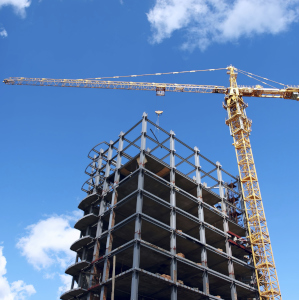Multiple industry bodies have forecast a decline in new building approvals, but what role will investors play?
Master Builders Australia CEO Wilhelm Harnisch said the May 2016 building approval data released by the Australian Bureau of Statistics (ABS) is consistent with the view that the new housing market is at its peak and is set to slow down.
The data showed that total new dwelling approvals declined by 5.2 per cent during the month, and by 9.1 per cent over the 12 months to May.
“The falls in apartment approvals were most marked in New South Wales and Queensland,” he said.
“Nevertheless, the total number of dwelling units approved will see a solid pipeline of work for the remainder of the 2016 calendar year.
“Approvals for new apartments are notoriously volatile, however it is anticipated that approvals for new apartments overall will start to soften in the months ahead.”
Mr Harnisch said the rate of decline in the new apartments market will largely be determined by “the mood of investors”.
“On the positive side, continued lower interest rates will underpin investment, but this will be mitigated by any uncertainties that may arise, in particular by other factors such as the tightening of lending rules and, more recently, the outcomes of the recent federal election,” he said.
Meanwhile, the Housing Industry Association said the ABS figures fit closely with its view that new home building activity is in the process of declining from last year’s record peak to more modest levels as the end of the decade approaches.
“The contraction in activity is predicted to be concentrated on the multi-unit side, with a more measured reduction in detached house building,” HIA senior economist Shane Garrett said.
The Property Council of Australia said the fact that building approvals have passed their peak has highlighted the risk of new taxes on foreign investors.
“Building approvals are a good indicator of future construction and jobs, and serve as a warning to governments,” Glenn Byres, chief of policy and housing at the Property Council, said.
“We have a fall of 9.1 percent in annual terms, with a decrease of 11.3 percent in seasonal terms for apartments over the month,” he said.
“Yet three states governments in NSW, Queensland and Victoria are rushing ahead with taxes on investment that will hurt supply and housing affordability.
According to Mr Byres, Victoria has fallen 12.8 per cent since it announced its new tax, and there are softening conditions in NSW and Victoria.
“The new anti-investment taxes represent bad taxes at a bad time, and all three states should be instead looking to real policies to improve housing affordability,” he said.





